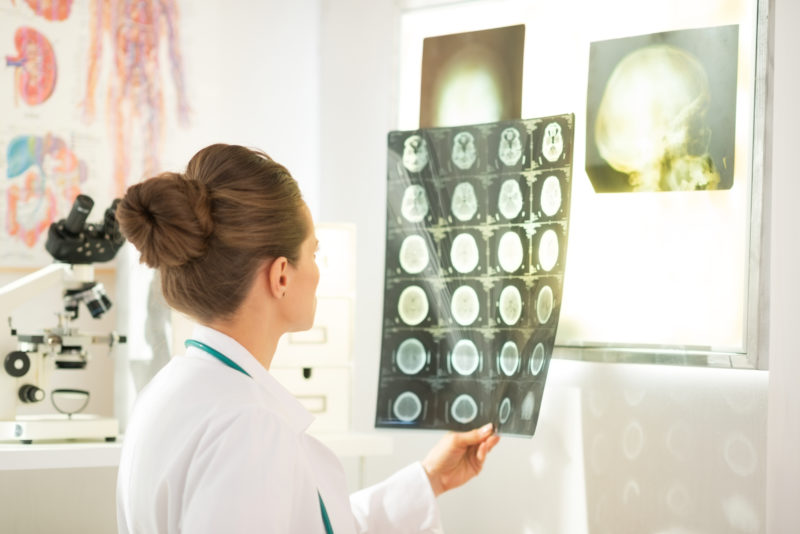Neurologists are specialised physicians that diagnose and treat neurological conditions. In other words, they work with conditions of the nervous system that may affect or start in the brain, spinal column, nerves and muscles. When a general practitioner (GP) suspects that you may have seizure events or epilepsy, for example, they may recommend further consultation with a neurologist or epileptologist.
- What is an epileptologist?
- What conditions can neurologists treat?
- Why see a neurologist?
- Where do neurologists work?
- What should I expect from an appointment with a neurologist?
- What treatments can a neurologist provide?
- What should you do if you think you may need to see a neurologist?
What education and training do neurologists have?
Neurologists are doctors that have additional training in the neurology specialty. This means before they even begin to specialise in neurology, they are already fully trained doctors.
A neurologist’s education and training will be as follows:
- Medical school (5-6 years)
- Internships and residencies (2 years)
- Specialist Physician training (3 years)
- Specialised training in neurology (3 years)
In Australia, most neurologists receive their additional 6 years of training through a Fellowship with the Royal Australasian College of Physicians while continuing to work as doctors.
What is an epileptologist?
An epileptologist is a type of neurologist that specialises in treating epilepsy. An epileptologist may be the next recommended step for people that may have severe epilepsy, when the diagnosis is uncertain, or have complications with epilepsy that require additional expertise after seeing a GP or neurologist.

What conditions can neurologists treat?
While neurologists are well-known for treating medical issues in the brain and spine, the scope of their work goes far beyond these two areas. The nervous system runs through the entire body and is responsible for the body’s many processes which are consciously controlled (such as moving your muscles) and not consciously controlled (such as digesting food).
Due to the fact that the nervous system is so complex and widespread throughout the body, a neurologist’s scope of diagnosis and treatment may include a large variety of conditions. Some of these conditions may affect not only the brain but the muscles, organs, nerves, and even brain processes such as thinking and behaviour.
Some of the most common conditions neurologists diagnose and manage include:
- Seizures and epilepsy
- Strokes and aneurysms
- Brain or spinal injuries
- Neurological conditions such as Parkinson’s disease and multiple sclerosis
- Brain tumours
- Migraines and headaches
- Alzheimer’s disease/Parkinsons disease
- Amyotrophic lateral sclerosis (ALS)
- Myopathies and other diseases of muscle
Why see a neurologist?
A GP will be your first step in seeking medical guidance when you are experiencing symptoms that you are concerned about. Once initial tests are done to rule out other causes for your specific concerns or symptoms, further diagnosis or treatment by a neurologist may be recommended if neurological issues are suspected.
Some common reasons a GP may recommend additional tests or treatment with a neurologist include:
- Seizures or seizure-like events
- Epilepsy
- Stroke or aneurysm
- Chronic or severe pain due to nerve injury
- Brain or spinal cord injury
- Memory issues
- Vision problems
- Dizziness or loss of coordination
- Problems with balance and gait
- Limb weakness
Where do neurologists work?
Neurologists work in the same places you would find most doctors, such as public and private hospitals, as well as clinics. Some will also work on critical care teams to be able to aid in diagnosis and treatment right at the time of a medical emergency.
In non-emergency situations, your doctor should be able to recommend a neurologist that has the right area of expertise for your needs. You can also use online directories to find a neurologist of your choice in your area.

What should I expect from an appointment with a neurologist?
When you first visit a neurologist, they will go over your medical history and discuss your symptoms with you. Taking the history is a very important part of the assessment, and may involve repeating a lot of details you have told other doctors, but it is usually the most important part of the whole process. Neurologists use a wide variety of diagnostic tools to assess a patient’s health issues. A preliminary exam may include checking your coordination and reflexes, mental state, speech, and vision. The examination may then continue on with more specialised tests depending on your symptoms and areas of concern.
Additional tests may include blood and urine analyses, as well as imaging tests such as MRI, CT scans, and PET scans. When specifically looking into seizures and epilepsy, they may also refer you to an electroencephalogram (EEG) test which records electrical activity in the brain.
[Blog] Ultimate guide to the EEG test
What treatments can a neurologist provide?
Once a neurologist comes to a diagnosis for a patient, the next step would be finding the right treatment, which may involve the help of additional health professionals. Treatment plans may include medications, procedures, surgeries, physical therapy, and mental health therapy.
Following a stroke, for example, a rehabilitation program may be needed to insure the best recovery outcomes. Medications may be prescribed to reduce the risk of further stokes. People diagnosed with epilepsy may be prescribed anti-seizure medication.
What should you do if you think you may need to see a neurologist?
Speak with your GP to find out if seeing a neurologist is the right next step for you. If you are having a medical emergency, call “000” right away.
Though Seer Medical does not have neurologists in our clinics, GP’s and neurologists can refer their patients to our clinics for our state-of-the-art testing services. We provide video-EEG-ECG testing that you can do from the comfort of your own home. At-home testing can provide your GP and/or neurologist with a wider range of data and information than would be possible in a standard doctor’s visit. Test data will then be sent back to your doctors so that they can have the best information available to get you an accurate diagnosis.

